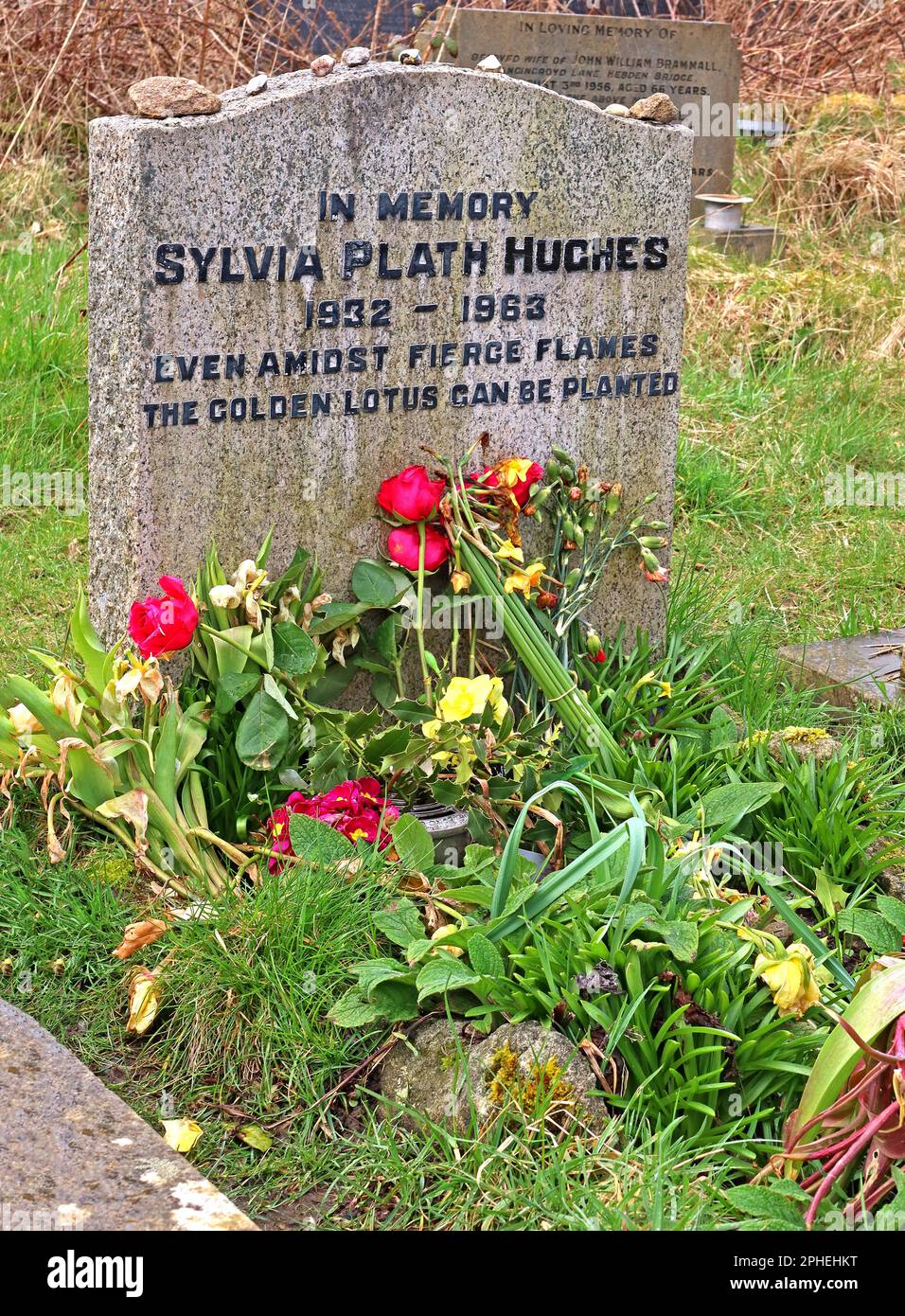The last resting place of Sylvia Plath Hughes, 1932-1963, gravestone in memory US poet, Even amidst fierce flames, The golden lotus can be planted

Image details
Contributor:
Tony Smith / Alamy Stock PhotoImage ID:
2PHEHKTFile size:
49.2 MB (4 MB Compressed download)Releases:
Model - no | Property - noDo I need a release?Dimensions:
3557 x 4832 px | 30.1 x 40.9 cm | 11.9 x 16.1 inches | 300dpiDate taken:
25 March 2023Location:
12,Becketts Cl, Heptonstall, Hebden Bridge, Yorkshire, England, UK, HX7 7LJMore information:
Sylvia Plath (October 27, 1932 – February 11, 1963) was an American poet, novelist, and short story writer. She is credited with advancing the genre of confessional poetry and is best known for two of her published collections, The Colossus and Other Poems (1960) and Ariel (1965), as well as The Bell Jar, a semi-autobiographical novel published shortly before her suicide in 1963. The Collected Poems was published in 1981, which included previously unpublished works. For this collection Plath was awarded a Pulitzer Prize in Poetry in 1982, making her the fourth to receive this honour posthumously. Born in Boston, Massachusetts, Plath graduated from Smith College in Massachusetts and the University of Cambridge, England, where she was a student at Newnham College. She married fellow poet Ted Hughes in 1956, and they lived together in the United States and then in England. Their relationship was tumultuous and, in her letters, Plath alleges abuse at his hands. They had two children before separating in 1962. Plath was clinically depressed for most of her adult life, and was treated multiple times with electroconvulsive therapy (ECT). She killed herself in 1963, 11/02/1963